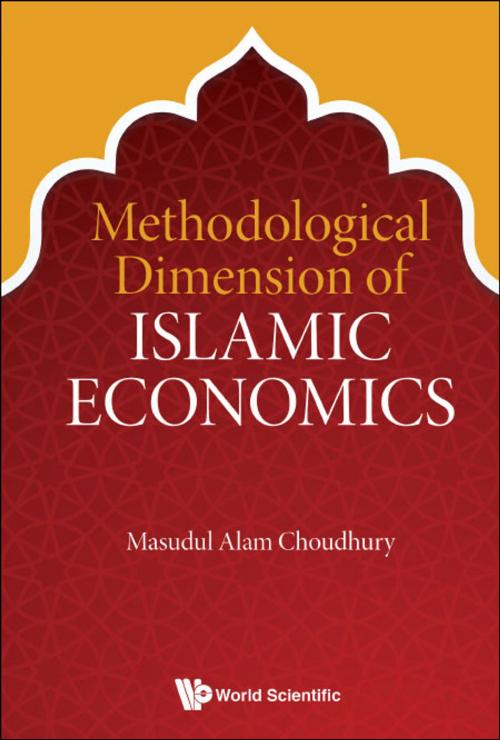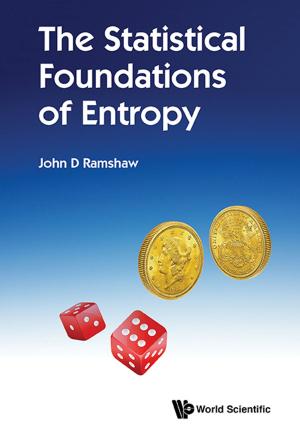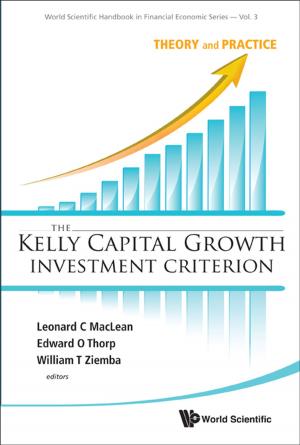Methodological Dimension of Islamic Economics
Business & Finance, Economics, Comparative Economics, Theory of Economics| Author: | Masudul Alam Choudhury | ISBN: | 9789813276031 |
| Publisher: | World Scientific Publishing Company | Publication: | January 7, 2019 |
| Imprint: | WSPC | Language: | English |
| Author: | Masudul Alam Choudhury |
| ISBN: | 9789813276031 |
| Publisher: | World Scientific Publishing Company |
| Publication: | January 7, 2019 |
| Imprint: | WSPC |
| Language: | English |
The theme of circular causation has nascent origin in the field of sociology of economics with vast development applications and with epistemological issues on modeling in the framework of the phenomenon of pervasive interconnectedness. Thus the sociological theme of epistemic unity of knowledge grounds the theory and application of the theory and models of circular causation to the vast realm of socioeconomic development issues.
The theory and application of circular causation has methodological similarities with Gunnar Myrdal's theory of social causation and Joseph Schumpeter's and Hayek's learning models of evolutionary phenomena. One can re-engineer many important works by sociological economists in and by the methodology of circular causation. Among these other important works are capabilities and functioning by Amartya Sen; John Rawls' evolutionary good society aspiring for social justice; adaptation of Ilya Prigogine's theory of being and becoming to social, economic and development phenomenon; and George Soros' theory of reflexivity in history and financial markets. The proponent of this book has pioneered the area of theory and application of circular causation extensively.
Contents:
- Prologue
- Preface
- About the Author
- Acknowledgment
- List of Figures
- List of Tables
- How to Study Islamic Economics as a Science in Reference to the Qur'an and the Sunnah
- Tawhidi Islamic Economic Methodology
- The Scope of Tawhidi Islamic Economics (TIE)
- The Formulation of Islamic Economic Model
- Islamic Participatory Instruments and the Ethical Dimensions
- The Dual Theories of Consumer Behaviour and Markets
- Dual Theories of the Firm
- Macroeconomic Theory in Mainstream and Tawhidi Islamic Economic (TIE) Perspectives
- Monetary, Financial, and Real Economy Issues in TIE in Comparative Perspectives
- Conclusion: What Have We Learnt? Quo Vadis?
- Index
Readership: For readers who are keen to understand the difference between Islamic Economics and mainstream economics.
Key Features:
- Popular rise of books in Islamic economics and finance
- Presently missing competing textbook in methodological treatment of Islamic economics
- Addresses a global academic market in respect of scientific treatment of new economic epistemic theory and applications
The theme of circular causation has nascent origin in the field of sociology of economics with vast development applications and with epistemological issues on modeling in the framework of the phenomenon of pervasive interconnectedness. Thus the sociological theme of epistemic unity of knowledge grounds the theory and application of the theory and models of circular causation to the vast realm of socioeconomic development issues.
The theory and application of circular causation has methodological similarities with Gunnar Myrdal's theory of social causation and Joseph Schumpeter's and Hayek's learning models of evolutionary phenomena. One can re-engineer many important works by sociological economists in and by the methodology of circular causation. Among these other important works are capabilities and functioning by Amartya Sen; John Rawls' evolutionary good society aspiring for social justice; adaptation of Ilya Prigogine's theory of being and becoming to social, economic and development phenomenon; and George Soros' theory of reflexivity in history and financial markets. The proponent of this book has pioneered the area of theory and application of circular causation extensively.
Contents:
- Prologue
- Preface
- About the Author
- Acknowledgment
- List of Figures
- List of Tables
- How to Study Islamic Economics as a Science in Reference to the Qur'an and the Sunnah
- Tawhidi Islamic Economic Methodology
- The Scope of Tawhidi Islamic Economics (TIE)
- The Formulation of Islamic Economic Model
- Islamic Participatory Instruments and the Ethical Dimensions
- The Dual Theories of Consumer Behaviour and Markets
- Dual Theories of the Firm
- Macroeconomic Theory in Mainstream and Tawhidi Islamic Economic (TIE) Perspectives
- Monetary, Financial, and Real Economy Issues in TIE in Comparative Perspectives
- Conclusion: What Have We Learnt? Quo Vadis?
- Index
Readership: For readers who are keen to understand the difference between Islamic Economics and mainstream economics.
Key Features:
- Popular rise of books in Islamic economics and finance
- Presently missing competing textbook in methodological treatment of Islamic economics
- Addresses a global academic market in respect of scientific treatment of new economic epistemic theory and applications















